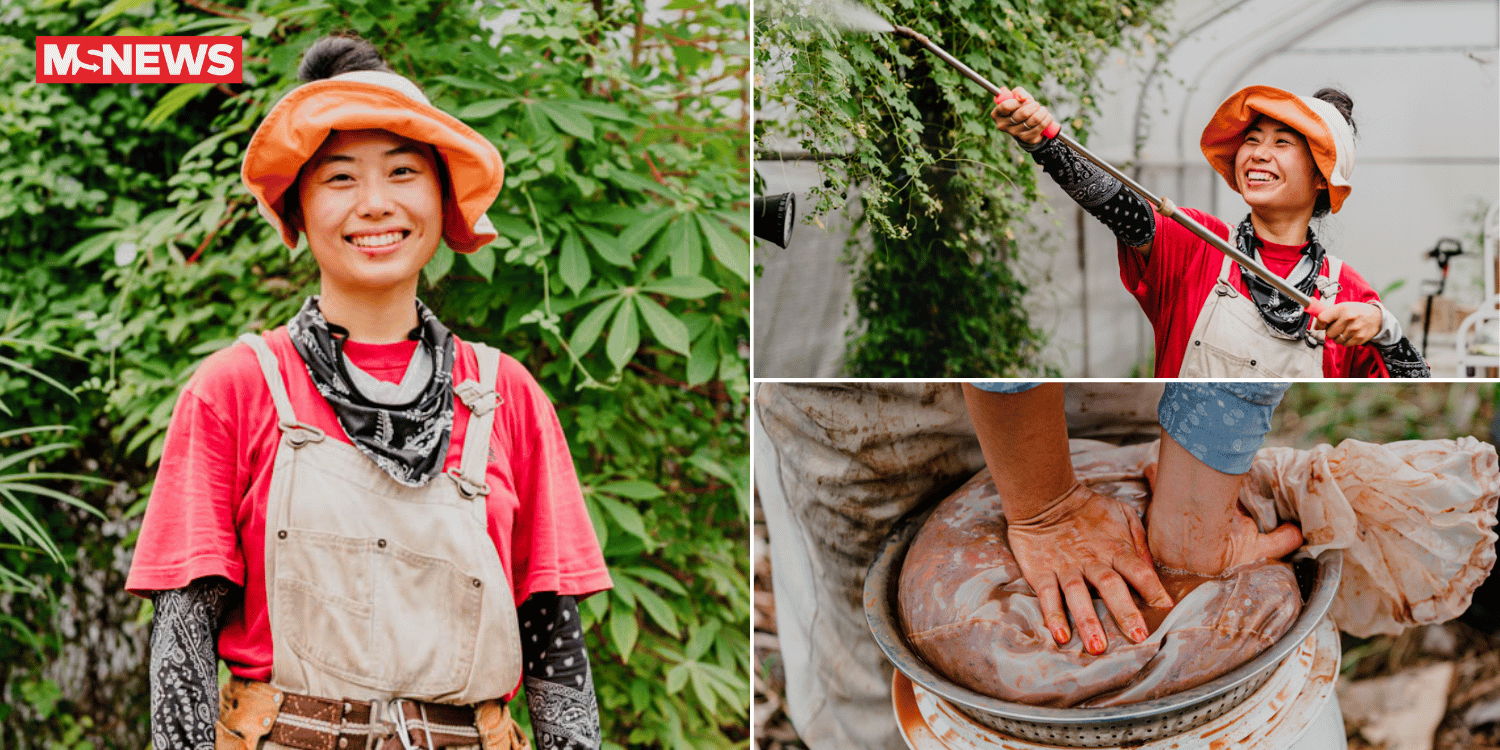Modern farmer & Biodiversity Master’s student grows edible plants with eco-enzymes
The Covid-19 pandemic was a pivotal moment of self-discovery for many, with the long periods of isolation offering a chance to reflect on their life’s purpose.
For Ana Zeng, this period ignited her passion for eco-enzymes – substances that come from the fermentation of organic waste – and using them to cultivate edible plants.
As an industrial design undergraduate on the verge of dropping out, she found a new purpose in this versatile and seemingly magical liquid, inspiring her to share its benefits.
Now, the 30-year-old ferments her own eco-enzymes and tends to a small but thriving “food forest” of sweet potatoes, tapioca, and other plants at City Sprouts Punggol.
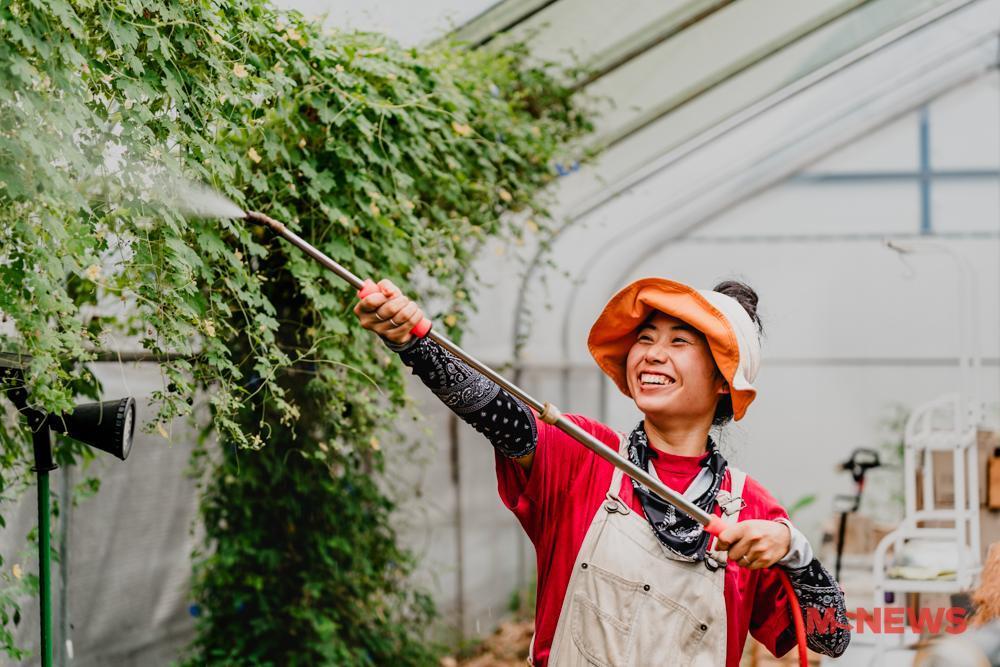
At the same time, she is pursuing a Master’s in Biodiversity Conservation and Nature-based Climate Solutions at the National University of Singapore (NUS), focusing on eco-enzymes and soil microbes.
Developed interest in fermentation amidst existential crisis
Ana’s journey into eco-enzymes began in 2019 while pursuing her Bachelor’s in Industrial Design, also at NUS.
Struggling to stay motivated and considering quitting, she took a leave of absence and spent a year in China, seeking purpose through New Age practices like astrology.
“I was curious about why we exist and what purpose we have in the universe,” she explained in an interview with MS News.
During this time, she delved into fermenting kombucha, kefir, and other substances.
“To me, fermentation is a form of alchemy, because it involves transforming one substance into another,” she mused.
Grew potatoes that ‘tasted like chestnuts’ in first experiment with eco-enzymes
Her interest in fermentation led Ana to discover eco-enzymes through WeChat in 2020, during the height of Covid-19 lockdowns.
“I learnt that eco-enzymes come from fermenting fruit peels and fruit waste with brown sugar and water for about three months,” she said. “The resulting liquid can break down chemical residues in soil, purifying and nourishing it to help plants grow better.”
She soon began experimenting with making her own eco-enzymes.
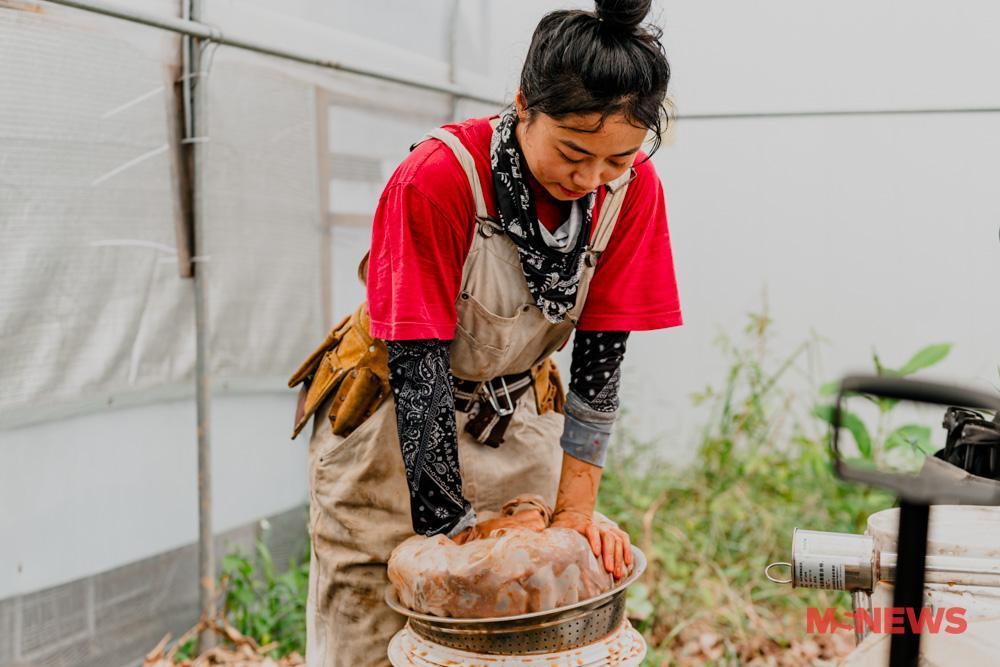
She initially used them as a household cleaning agent and used the leftover liquid to water her potato plants.
“That was my first time planting potatoes,” Ana recalled. “After three months, the soil became so rich and the potatoes tasted like chestnuts!”
The discovery was like a lightbulb that went off in her head.
“Right away, I saw the immense potential of eco-enzymes to change the world, and that’s when I realised what I wanted to do with my life – to share what eco-enzymes can do.”
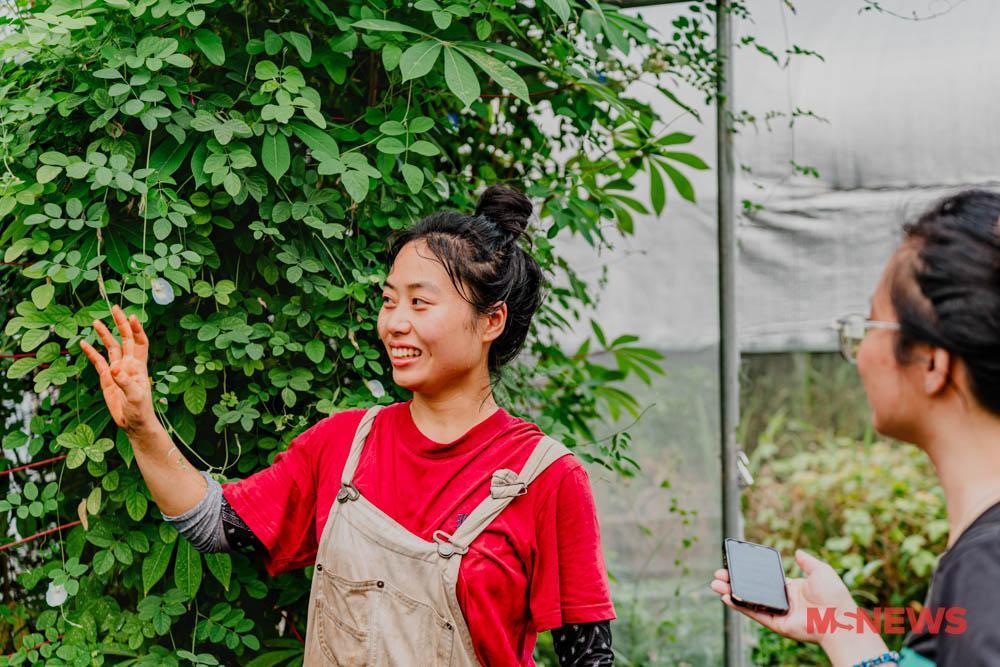
Following this realisation, Ana decided to return to school and gain the necessary qualifications to accomplish her mission.
“People are probably going to take me more seriously with a college degree, so I knew I had to complete my studies,” she said. “Although I was studying design, I decided to make my final-year thesis about eco-enzymes.”
Received S$50,000 grant to continue research into eco-enzymes
Shortly before graduating with a Bachelor’s in Industrial Design in 2021, Ana received an NUS Resilience & Growth (R&G) grant of S$50,000 to continue her research into eco-enzymes.
She used the grant to optimise her community programme, where she partnered with Pek Kio Market & Food Centre and grassroots leaders to reduce food waste by collecting fruit peels from hawkers and fermenting them into eco-enzymes.
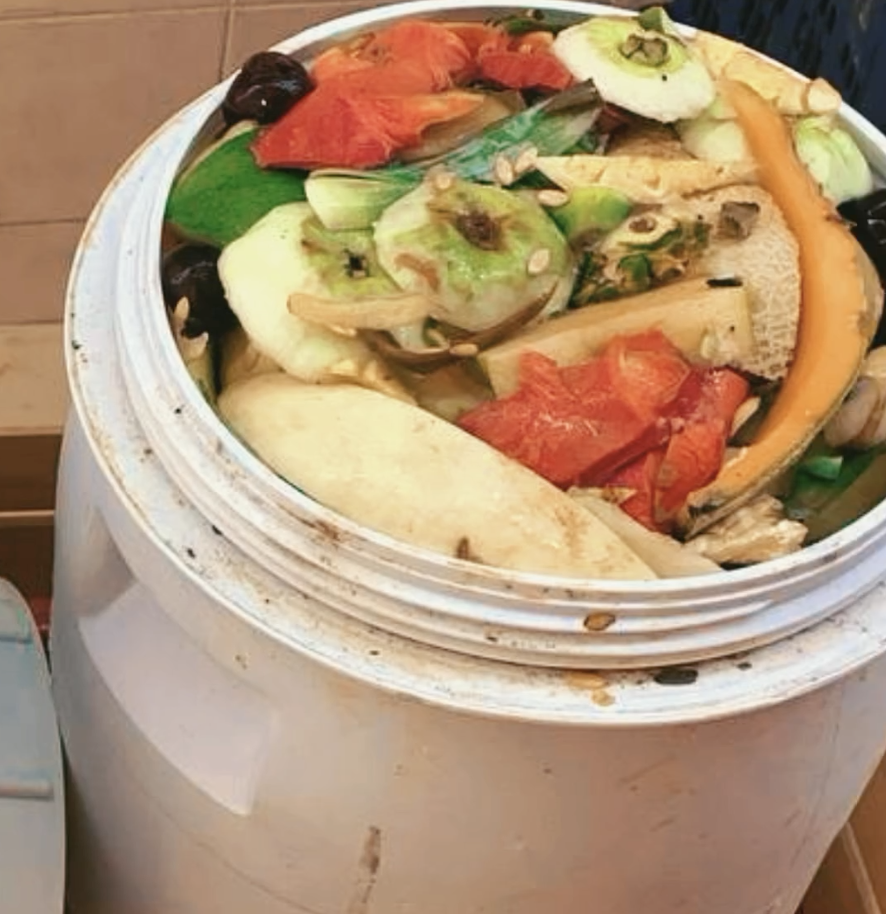
Source: @city_sprouts on Instagram
These eco-enzymes were then used to craft a cleaning solution, which she redistributed to the hawkers. Ana noted that this concoction is cost-effective as only half the usual detergent is needed.
Besides being great for gardening and cleaning, eco-enzymes also possess skincare benefits and are gentle enough for sensitive skin.
Ana personally substitutes eco-enzymes for face wash and shampoo, happily reporting that both her skin and hair have responded beautifully to this multipurpose ‘magic potion’.

After graduating, Ana received additional funding for her eco-enzyme work, securing grants such as the Youth Action Challenge (YAC) grant and SG Eco Fund.
Her ultimate mission is to scale up her project and explore the benefits of eco-enzymes in agriculture.
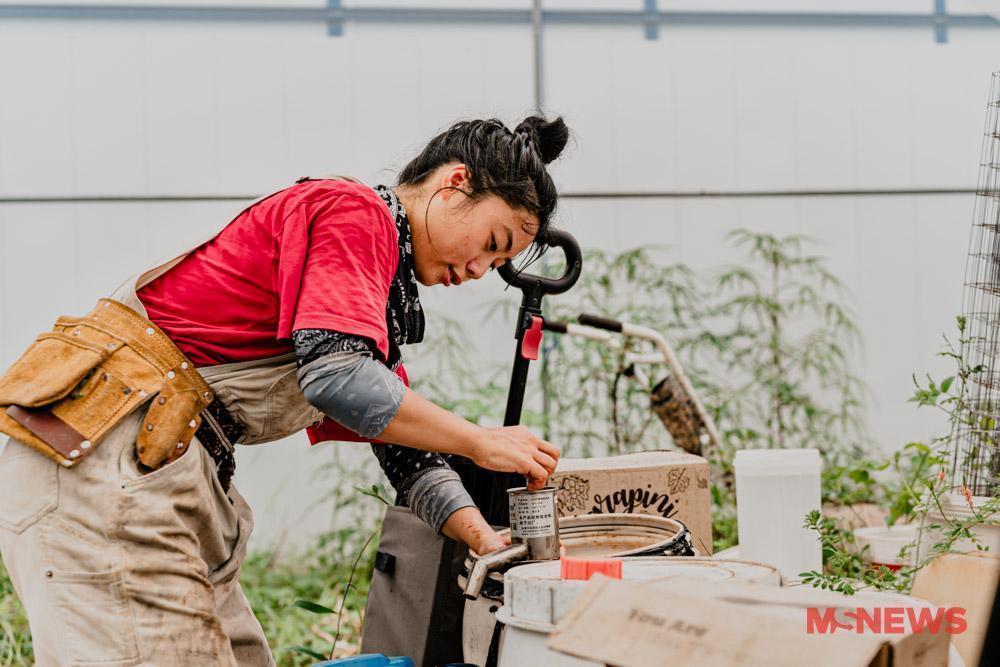
To achieve this, she enrolled in a Master’s programme in Biodiversity Conservation and Nature-based Climate Solutions in August 2023.
She hopes that this move will lend her more credibility and legitimacy for further research into her passion.
Grows edible ‘food forest’ with eco-enzymes at City Sprouts Punggol
When Ana isn’t busy with her studies, she makes weekly visits to her greenhouse at City Sprouts Punggol to tend to her plants and to check on her fermenting eco-enzymes.
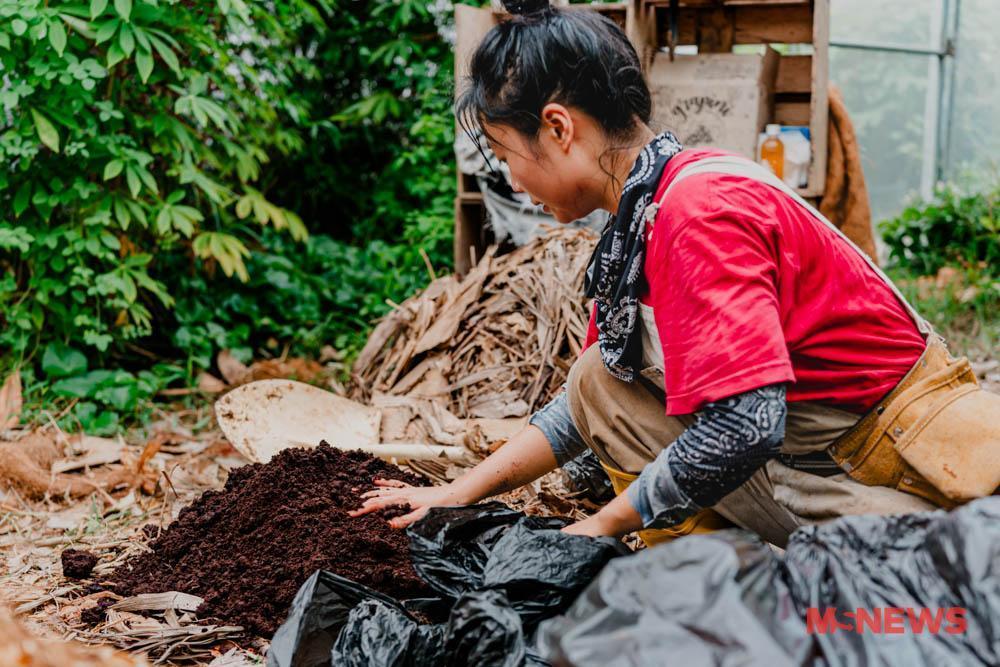
She admitted that while her overarching goal is to earn her Master’s and advocate for eco-enzymes, she hasn’t quite mapped out a plan for monetising her endeavours – most of her actions are driven by serendipitous impulses.
Even renting her plot at City Sprouts Punggol was a spontaneous decision for the Sengkang resident.
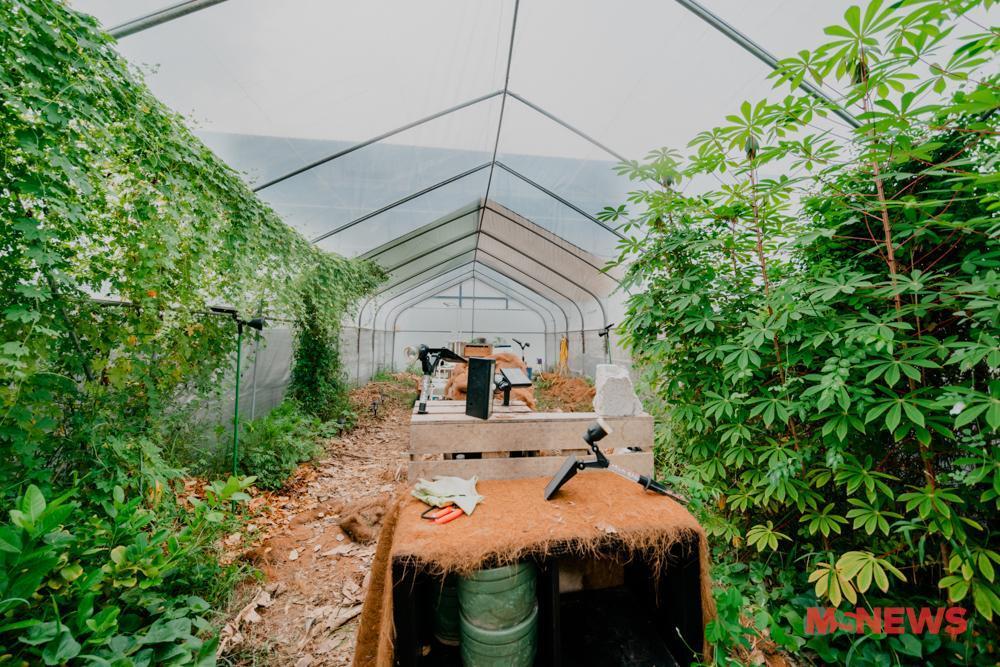
“The only thing I knew was that I wanted to grow my own tropical food forest and I had the skills to do it,” she said.
“So, when I learnt that there was an available plot near my home, I thought: ‘Quick, let’s do it now!’ There wasn’t much of a plan beyond that.”
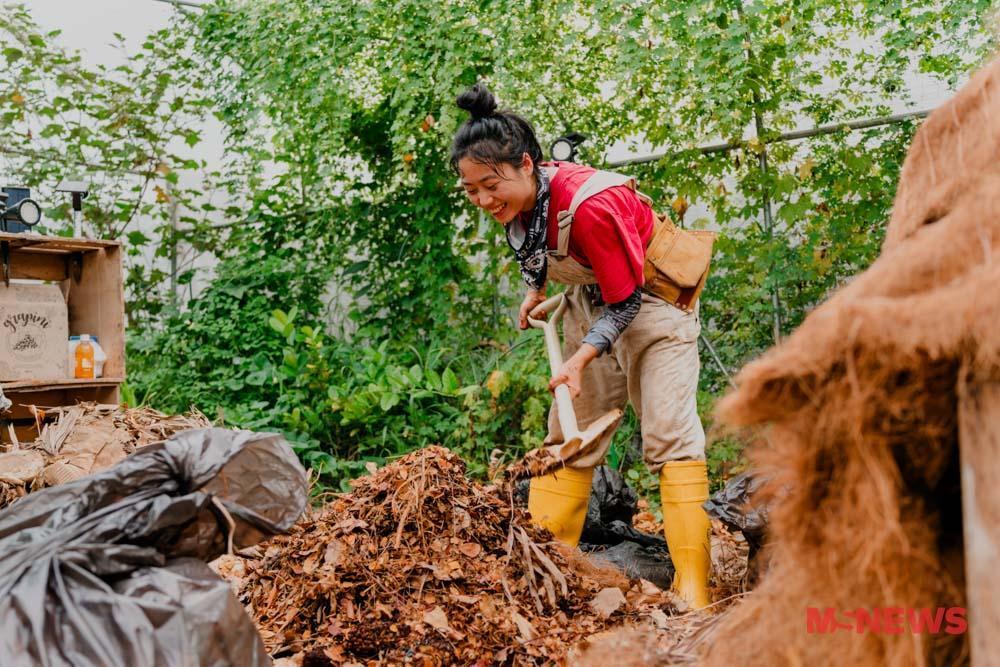
Ana’s food forest comprises approximately 14 different edible plants, including the laksa plant, pandan, pineapple, eggplant, sweet potato, and tapioca.
“It is very important for our generation to know how to grow our own food as I foresee many food-related challenges in about 20 years’ time,” she said. “There are many native edible plants in Singapore, but most residents are not even aware that they can eat these plants.”
“I want to demonstrate how simple it is to grow these plants,” she continued. “They require minimal maintenance and largely thrive on their own, helping us become more self-sufficient in terms of food.”
Being aware of your surroundings & staying vigilant will help prevent pests
Gardening and keeping plants inevitably bring concerns about pests and unwanted insects like mosquitoes.
However, Ana remains unfazed as she always diligently overturns pots and anything that might collect stagnant water, eliminating potential breeding spots for mosquitoes.
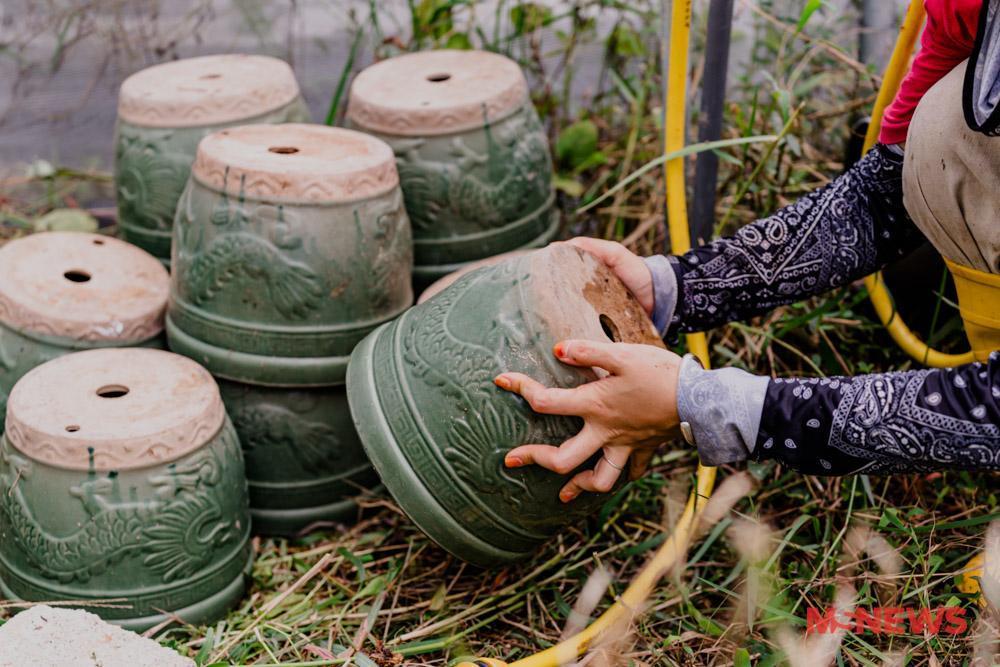
Despite these measures, she still takes precautions such as wearing long-sleeved shirts and full-length trousers to avoid mosquito bites while working in her garden.
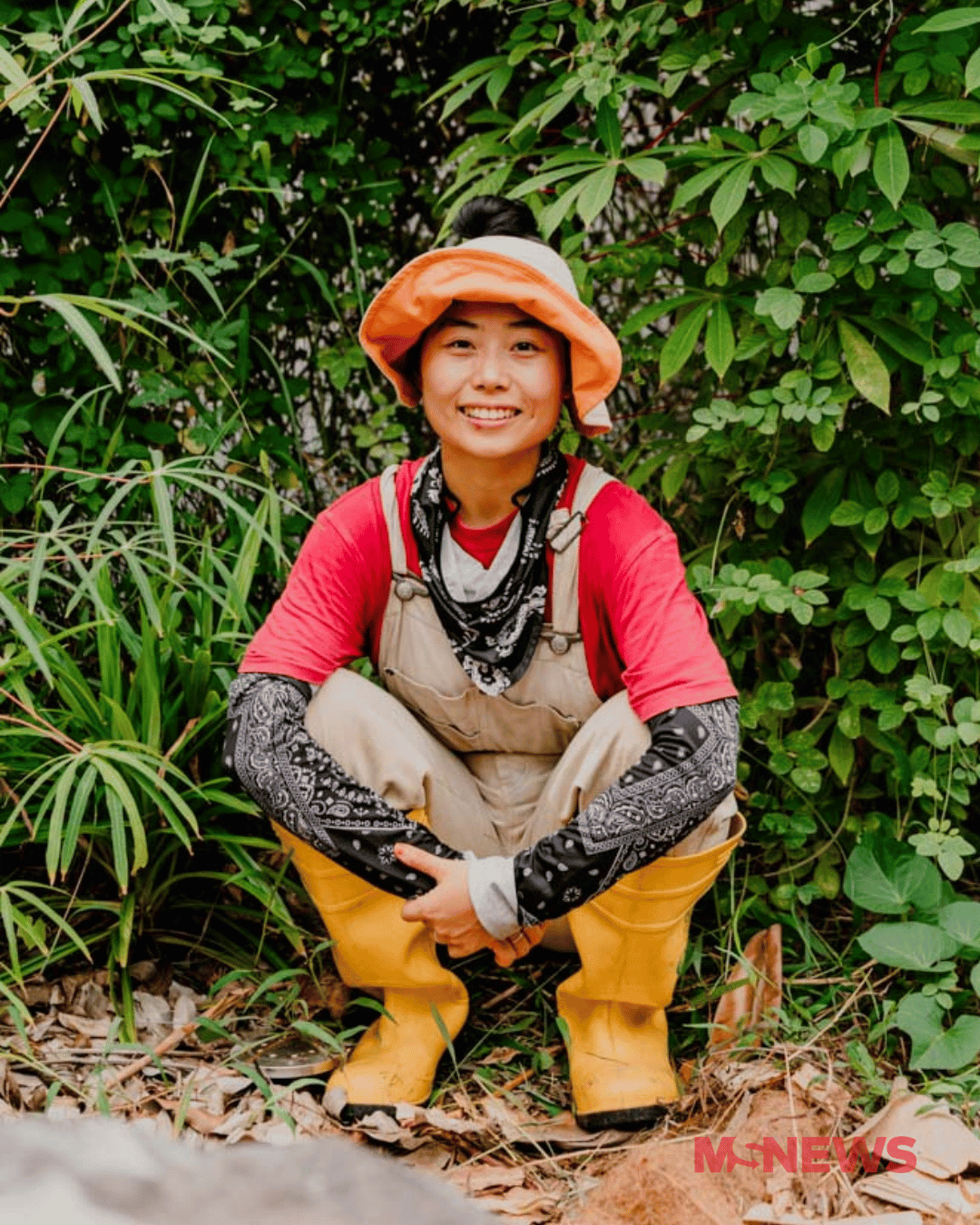
Ana advises fellow plant enthusiasts to be mindful of their gardening environment at home, whether it’s on their balcony or in their backyard.
“Sometimes, when you spray water and it accidentally accumulates in a container lying around, that increases the risk of mosquitoes breeding. So, for me, there is no corner of the greenhouse where I don’t know what’s going on.”
Take preventive measures against dengue, especially if you have plants at home
Ana’s reminder is timely considering the fact that three of the five top breeding habitats for Aedes mosquitoes in 2023 were domestic containers, flowerpot plates or trays, and ornamental containers.
In January 2024, it was also found that mosquito breeding habitats in homes doubled in comparison to the previous year.
Therefore, the National Environment Agency (NEA) emphasises the importance of practising the B-L-O-C-K steps at least once a week to prevent mosquito breeding:
- Break up hardened soil
- Lift and empty flowerpot plates
- Overturn pails and wipe their rims
- Change water in vases
- Keep roof gutters clear and place BTI insecticide
BTI insecticide is also useful for plant owners who are unable to change the water in vases due to being away on long trips or other reasons. It can easily be purchased at plant nurseries, hardware shops, and online retailers.
Additionally, you should take the S-A-W protective measures against dengue, especially if you are living in dengue cluster areas:
- Spray insecticide in dark corners around the house
- Apply insect repellent regularly
- Wear long-sleeved tops and long pants
For more information on how to prevent dengue, visit NEA’s Clean & Green Singapore website.
You can also receive the latest updates and developments by following the campaign’s Facebook and Instagram pages.
While cultivating your own beautiful garden and enjoying the benefits of growing your own food is exciting, it’s essential not to let the risk of dengue fever overshadow your passions.
By taking necessary precautions, you ensure that you and your loved ones can relish the fruits of your labour with peace of mind.
This article was brought to you in collaboration with the National Environment Agency, in support of the Year of Public Hygiene.
Featured image by MS News. Photography by Emmanuele Loza.
